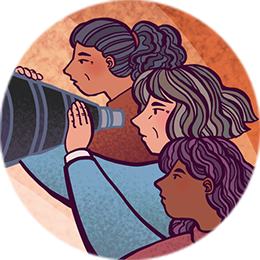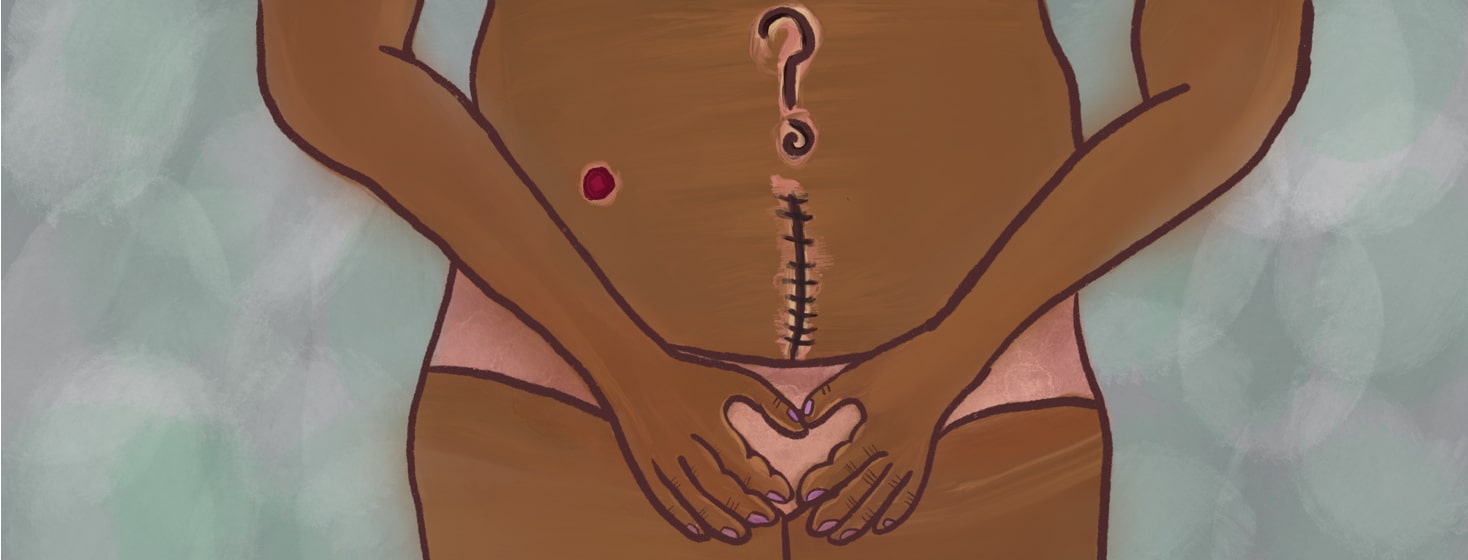Female Anatomy Changes with a Radical Cystectomy
Ladies! Let's dish about the bits 'n' pieces. When I was heading into my radical cystectomy with a radical hysterectomy slated in September 2016, I thought I knew what I was headed into. Anatomically, I did. As far as what that would mean for the long term, I most definitely did not!
I quickly learned that all of the anatomy changes that I experienced would drastically change how I moved forward in life for the rest of my life. Hopefully, some of the things I have learned will help you through your journey and know what to expect.
You are being forewarned. I am going to lay it all out!
Vaginal discharge
I don't know about anyone else, but I have had a ridiculous amount of vaginal discharge since my procedure. Ridiculous! So much so that the aids who helped me clean myself up both in the hospital and at the rehab facility post-op commented on it and asked if it was a normal amount. How would I know?! I had just had major surgery and no longer urinated biologically.
Now, don't get me wrong, I had always had a fair amount of discharge, but when you urinate, your body automatically flushes a lot of it away and helps clean things up down there. Many women do not realize the amount of discharge that they deal with because of this. It is normal. They don't tell you that once you take away your bladder and urinate via a different route, that you will experience discharge so differently.
At times, the discharge is so heavy that if I didn't know better, I would have thought I was wetting my panties! I work with my GYN oncologist to make sure the discharge remains healthy and without a strong odor. Unfortunately, there is not much that can be done for the sheer volume though.
Also, since there is no urine to wash things away a bit, you have to keep a closer eye out for bacteria and yeast in the nether region.
Pelvic floor dysfunction (PFD)
The nature of the massive surgical that is radical cystectomy with any diversion in and of itself lends to the possibility of nerve damage. You cannot have a procedure performed of that magnitude without that risk as nerves are not visible to the naked eye. So obviously, since the procedure is in the pelvis area, there are bound to be some issues.
Surprisingly to some, this is not a strictly female issue. Yes, that's right! Men can experience pelvic floor dysfunction, too! Unfortunately, there really is no way to "cure" this or fully reverse it. Exercises and even physical therapy can improve PFD, but it is something you will likely deal with for life once you have it.
Kegel exercises and other exercises often suggested for post-partum women can be useful in healing and fighting off PFD.
Finding a PFD physical therapist
PFD is actually so prevalent that there is a special certification that physical therapists can get to assist people with this diagnosis. If you are in the US, you can talk to your gynecologist, primary care physician, or urologist about getting a referral to a PFD PT specialist near you.
However, not all medical personnel are aware of this specialization, so you may need to go into the conversation prepared. The American Physical Therapist Association has a PFD PT locator on its website. You can search for a special physical therapist here.
Pelvic exams
If the thought that immediately jumps to your mind with the use of this phrase is "OW! PAIN!" you have probably experienced painful pelvic exams since your radical cystectomy. I mean, let's be realistic... That exam is never anyone's favorite thing, and it is always uncomfortable at best. However, post-radical cystectomy combined with a radical hysterectomy, the bug-infested picnic gets hit by massive thunderstorms!
In my case, I had tumor involvement with my cervix. In addition to my bladder, everything from my ovaries down to a portion of my cervix was removed. My first pelvic exam post-treatment was excruciatingly painful. Fortunately, my GYN was gracious, empathetic, and understanding. She also recognized that she was not the best person to care for me and referred me to a GYN oncologist. I have been with her and her nurse practitioner ever since.
I highly recommend this if you are having a harder time enduring your annual pelvic exams post-radical cystectomy.
Sexual desire declines drastically
Being single has been especially concerning for me as eventually, I would like to have some romance in my life again. I had a fairly active sex life in my late 20's up until I started experiencing my bladder cancer symptoms. I enjoyed sex thoroughly.
Since my radical cystectomy, I have had zero physical desire. Intellectually, I want it. My body needs it to keep the tissue down there from becoming irreversibly atrophied. I'm not a robot, though.
I am trying a testosterone cream to stimulate my hormones, but I have not noticed much of a difference, and insurance does not cover this treatment. I have a family history of breast cancer, so oral hormones are contra-indicated. It is a fine balancing act that we're still trying to work out.


Join the conversation